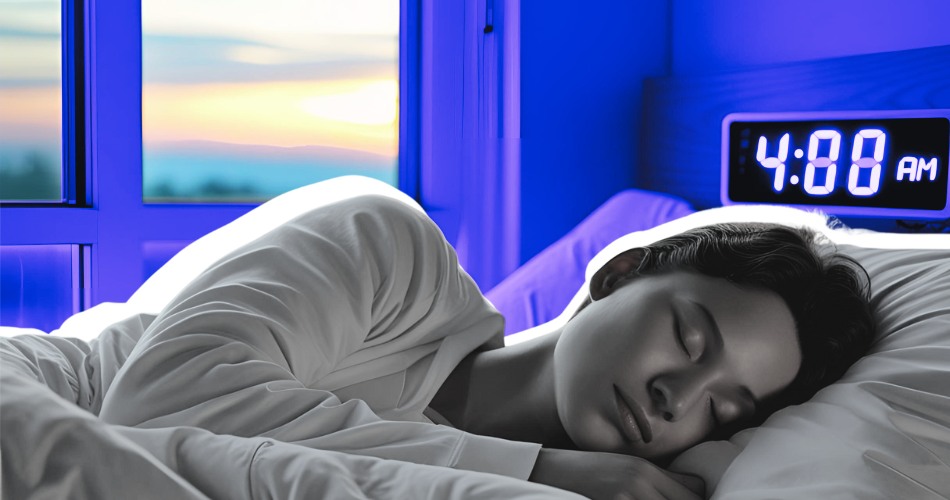
“The secret to success is hard work.” “Pull yourself up by the bootstraps.” “Dig in.” “Lean in.” “Push forward.” “Soldier on.” Sound familiar? Has there ever been a time when productivity hasn’t been the measurement of success?
We’re in an era now that trends like “The 4 AM Club” are gaining popularity with high achievers. The idea of waking up before dawn to get a head start on the day is enticing. However, emerging research suggests that only a small fraction of people possess a genetic mutation allowing them to function optimally on just four to six hours of sleep. For the rest, sacrificing sleep for early mornings may be counterproductive.
The Genetics Behind Natural Short Sleepers
Scientists have identified specific genetic mutations that enable certain individuals to maintain high energy levels and cognitive function with significantly less sleep than average. One such mutation occurs in the DEC2 gene (also known as BHLHE41), which influences the production of orexin, a neuropeptide that promotes wakefulness. This mutation results in increased orexin levels, allowing individuals to feel rested after only four to six hours of sleep.
Further studies have uncovered additional gene mutations associated with natural short sleep patterns. For instance, mutations in the ADRB1 gene have been linked to heightened wakefulness and reduced sleep necessity. Similarly, a missense mutation in the NPSR1 gene has been associated with a natural short sleep phenotype in humans.
It’s important to note that these mutations are exceedingly rare, occurring in a minute fraction of the population. Most people do not possess these genetic traits and therefore require the standard seven to nine hours of sleep for optimal health.
The Health Implications of Sleep Deprivation
Attempting to emulate the sleep patterns of natural short sleepers without the genetic predisposition can lead to adverse health effects. Research indicates that inadequate sleep is linked to a range of health issues, including impaired cognitive function, weakened immune response, and increased risk of chronic diseases such as hypertension, diabetes, and obesity.
Moreover, studies have shown that even short-term sleep deprivation can have immediate negative impacts. For example, just three nights of restricted sleep can raise the risk of heart disease, even in young and healthy individuals. Sleep deprivation also affects the body's ability to regulate hunger hormones, leading to increased appetite and potential weight gain.
Additionally, research from the University of Westminster found that individuals who wake up early have higher levels of the stress hormone cortisol, which can negatively impact health over time.
Aligning Sleep Patterns with Individual Needs
Understanding and respecting one's natural sleep patterns, or chronotype, is essential for health and productivity.
Not everyone is biologically wired to be an early riser, and attempting to conform to such schedules can be detrimental. Here are some practical strategies to align sleep patterns with individual needs:
- Identify Your Chronotype: Pay attention to when you naturally feel most alert and productive.
- Prioritize Sleep Quality: Ensure your sleep environment is conducive to restful sleep—dark, quiet, and cool.
- Maintain Consistent Sleep Schedules: Going to bed and waking up at the same time daily helps regulate your internal clock.
- Limit Stimulants Before Bedtime: Reduce caffeine and electronic device usage in the evening to promote better sleep.
- Listen to Your Body: If you feel tired, allow yourself the rest you need rather than adhering to rigid schedules.
Conclusion
While the allure of early rising and the productivity it promises is strong, it's crucial to recognize that such routines are not universally beneficial. Only a rare few possess the genetic makeup to thrive on minimal sleep. For the majority, adequate rest is indispensable for health, well-being, and true productivity. Embracing one's natural sleep patterns and prioritizing quality sleep can lead to more sustainable and effective outcomes than forcing early wake-up times.
Sources





